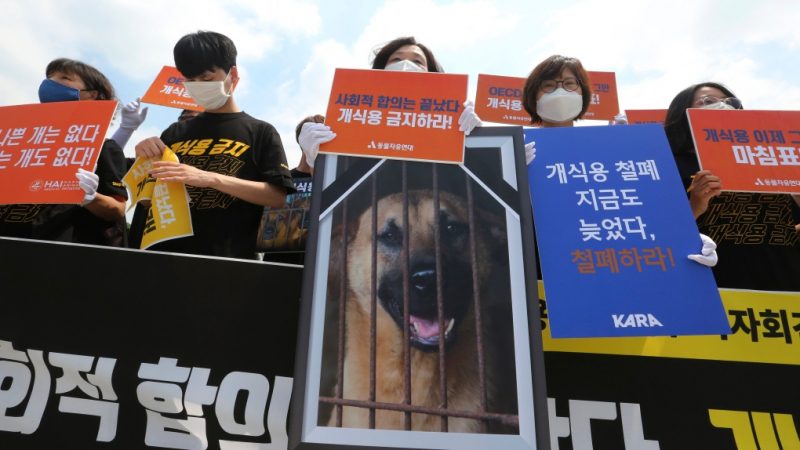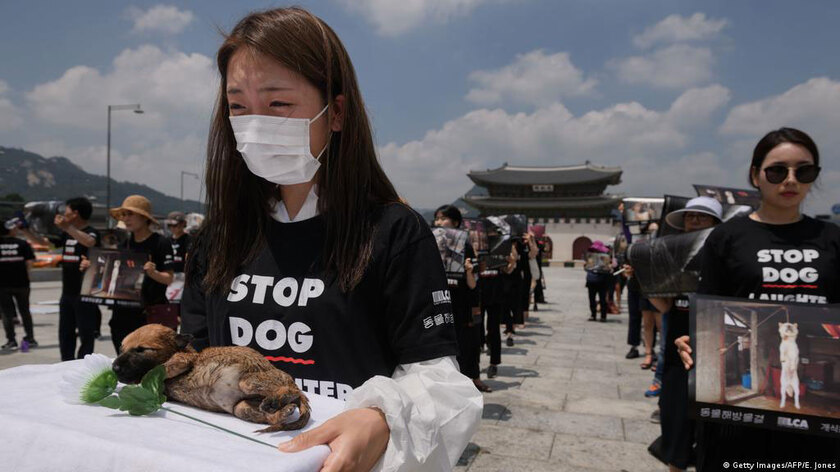One of the most difficult things for Westerners to accept about life in South Korea, and some other Asian countries, is the custom of eating dog meat. For many Westerners, just thinking about it is nauseating, while in South Korea, dog meat is a sacred culinary tradition.
According to the WSJ, the dog meat industry in South Korea slaughters an average of 2.5 million dogs annually, supplying 20,000 restaurants nationwide and generating approximately $2 billion in revenue. It is also estimated that 100,000 tons of dog meat are consumed annually, of which about 93,600 tons are used to produce a health tonic called "gaeoju."
Cultural differences between countries are often very conflicting and difficult to resolve. Regarding the issue of dog meat, opponents argue that eating dog meat is "reprehensible" because dogs are not just pets but also close companions, even family members.
Despite the controversies, this year's "boknal" marks a significant turning point in the journey towards a more humane Korean society towards animals. In Korea, "boknal" refers to the hottest period of summer, comprising three days representing different timeframes: chobok (the beginning of the hot season), joongbok (the middle of the hot season), and malbok (the end of the hot season). This year, the first "boknal" day – chobok – falls on July 15th.

The consumption of dog meat in South Korea has been a subject of controversy for many years.
During these three days of "boknal," Koreans typically eat energy-boosting, nutritious dishes to combat the summer heat. Bosintang (dog meat soup) and samgyetang (ginseng chicken stew) are two popular dishes favored during this time, driving dog meat consumption to its peak. Some traditional medicine shops also offer gaesoju—a herbal drink made from dog meat, believed to be a health tonic.
However, in recent times, the South Korean market for dog meat has been gradually declining due to the government's ban on the dog meat trade.
South Korea began by establishing legal frameworks to curb the consumption of dog meat. In 2007, the South Korean National Assembly passed the Animal Protection Act, making the trade and slaughter of dogs for meat illegal. Following the passage of this law, South Korean authorities began prosecuting and punishing those who mistreated, abused, and brutally killed domesticated animals, especially dogs.

The fight to protect and eliminate dog meat from Korean culture is extremely difficult.
Along with legal sanctions, South Korea has also intensified its campaign to encourage people to say "no" to dog meat. A recent survey by the South Korean Ministry of Agriculture showed that only about 30% of the country's population still eats dog meat, and 59% of young Koreans under 30 have never eaten dog meat at all. Of those, 62% said that dogs are pets, not food, and that eating dog meat is an "outdated cultural practice" that needs to be eliminated.

 VI
VI EN
EN



































